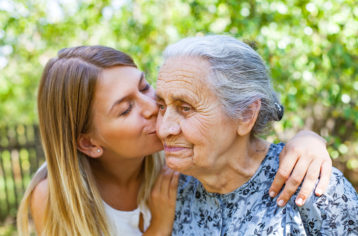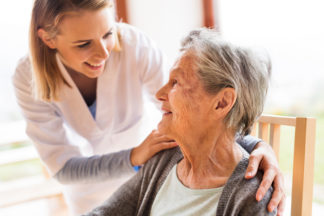Reducing your risk for heart disease is not just for the young.
As an older adult, there is a lot you can do to reduce your risk for heart disease so you can enjoy your loved ones longer.
In today’s post, I’ll be sharing guidelines from the American Heart Association that will help you keep a healthy heart.
8 ways to reduce your risk for heart disease as an older adult
Get active
If you get at least 150 minutes of moderate activity, this is enough to keep heart disease at bay.
This translates to 30 minutes a day for 5 days a week.
It doesn’t matter what you do.
You could dance, walk, run or swim. It’s really up to you.
So if you’re getting at least 30 minutes of exercise into your day, you are doing great.
Eat healthy
The key here is to keep your plate colorful.
Vegetables and fruits will help you achieve this goal.
And there are so many ways to prepare your vegetables beyond just eating a salad.
You could saute them and turn them into a stir-fry dish.
You can pair them with your favorite meals so they are more palatable.
Personally, one of the ways I’ve been ensuring that I get my daily dose of vegetables is to prepare a green smoothie out of them.
I will usually combine spinach, celery, an apple and a bit of ginger to make a smoothie that tastes great and gets me on the healthy bus.
Bottom line: you can get creative with vegetables and fruits so you don’t get bored and give up on them.
Control cholesterol
Cholesterol is called a silent killer for good reason.
There is no way to tell if a person has high cholesterol or not just by looking at them.
In fact, there are people who have high cholesterol because of their genetics.
The best way to know your cholesterol levels is for you to check with your doctor.
In those results, you want to see if your LDLs (low density lipoproteins) are high or low. If they are high, it’s important to pay attention to that.
One of the best ways to reduce cholesterol is to eat foods that are low in cholesterol.
Eating fruits and vegetables are an excellent start.
Including foods that are high in Omega-3 fatty acids such as mackerel, salmon, herring, oysters and anchovies are a good start as well.
In some cases, your doctor may also prescribe cholesterol-reducing medication for you.
Stop smoking
If you smoke, this is a good time to quit. Smoking is linked to several heart diseases and quitting reduces your risk of heart disease.
If you’re having trouble quitting, talk to your doctor about medication that could help you on the journey.
Lose weight
It goes without saying that if you’re eating well and exercising, you will lose and maintain a healthy weight.
Control your blood sugar
Blood sugar is important for your body.
However, if it cannot reach the cells and organs of your body-a situation that happens in diabetes, it can affect your heart.
Sticking to several of the activities on this list will help to reduce and control your blood sugar.
Where necessary, your doctor will prescribe insulin or another diabetes medication to help you control your blood sugar.
Control your blood pressure
Blood pressure is the force of blood pushing against your blood vessels.
Stress and unhealthy eating are strongly linked to high blood pressure.
You can control it by eating well, exercising and reducing the amount of stress you put your body through.
Get enough sleep
Even Superman needs sleep.
Getting at least 7-8 hours of sleep each night is essential to keeping your heart healthy.
Did you enjoy this post? Share it with someone else looking to improve their heart health!









